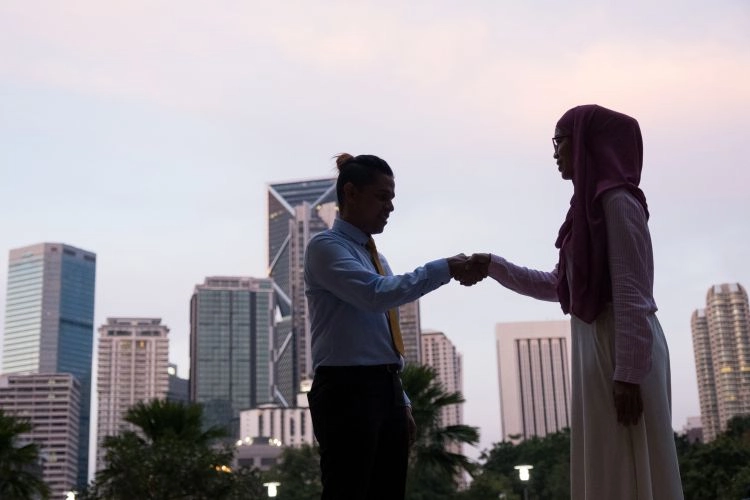How Malaysia’s MSRF timeline will shape business reporting over the next three years

The implementation of Malaysia's MSRF follows a meticulously planned timeline designed to balance regulatory ambition with practical implementation realities facing Malaysian businesses. Understanding Malaysia's MSRF timeline is crucial for Malaysian companies planning their sustainability reporting journey and ensuring compliance with Malaysia's evolving regulatory requirements.
Malaysia's phased approach to MSRF implementation recognises that Malaysian companies have varying levels of readiness for comprehensive sustainability reporting. Large Malaysian public companies, with their extensive resources and stakeholder expectations, are positioned to lead Malaysia's MSRF implementation, while smaller Malaysian entities receive additional preparation time to develop necessary capabilities and systems within Malaysia's business ecosystem.
Phase One of Malaysia's MSRF commenced in 2024 with preparatory activities focusing on awareness building, capacity development and system establishment across Malaysia's business community. During this preparatory phase, Malaysian companies were encouraged to familiarise themselves with IFRS S1 and S2 requirements while Malaysian regulators established supporting infrastructure, including guidance documents, training programmes and stakeholder engagement initiatives tailored to Malaysia's market conditions.
The first mandatory reporting obligations under Malaysia's MSRF begin in 2025 for large Malaysian public companies with market capitalisations exceeding RM2 billion. These Malaysian companies must prepare their inaugural sustainability reports using Malaysia's MSRF framework for financial years ending on or after December 31, 2025. This means Malaysian companies with December year-ends will publish their first MSRF-compliant reports in 2026, marking a significant milestone in Malaysia's sustainability reporting evolution.
Phase Two of Malaysia's MSRF expands the scope to include medium-sized Malaysian public companies with market capitalisations between RM500 million and RM2 billion. These Malaysian companies must comply with MSRF requirements for financial years ending on or after December 31, 2026. This one-year delay provides additional preparation time for medium-sized Malaysian businesses while maintaining momentum toward comprehensive coverage across Malaysia's corporate sector.
The third phase brings smaller Malaysian public companies into Malaysia's MSRF framework, with compliance required for financial years ending on or after December 31, 2027. This extended timeline acknowledges that smaller Malaysian companies may need more time to develop internal capabilities and access specialised expertise for effective MSRF implementation.
Within each phase of Malaysia's MSRF implementation, Malaysian companies face specific milestone deadlines that structure their preparation process. The first milestone involves completing comprehensive materiality assessments to identify sustainability-related risks and opportunities affecting Malaysian companies' financial performance. This assessment must be completed at least six months before the first MSRF reporting deadline, ensuring Malaysian companies have adequate time for thorough analysis.
The second milestone requires Malaysian companies to establish data collection and management systems capable of capturing quantitative and qualitative information needed for Malaysia's MSRF compliance. Malaysian companies must demonstrate that their systems can produce reliable, auditable sustainability data meeting Malaysia's MSRF quality standards. Solutions like Speeki Carbon Lens can help Malaysian companies establish effective carbon accounting systems, while the Speeki Platform provides comprehensive data management capabilities for full MSRF compliance.
The third milestone involves Malaysian companies preparing for external assurance, including selecting assurance providers and establishing internal controls supporting the assurance process. While initial assurance requirements may be limited, Malaysian companies must demonstrate readiness for evolving assurance standards under Malaysia's MSRF framework.
Climate-related disclosures under IFRS S2 within Malaysia's MSRF follow specific sub-timelines. Malaysian companies must begin reporting Scope 1 and Scope 2 greenhouse gas emissions immediately upon entry into Malaysia's framework. Scope 3 emissions reporting is subject to a two-year grace period, recognising the complexity of supply chain emission calculations for Malaysian companies with extensive regional and global operations.
Climate transition plan requirements within Malaysia's MSRF also follow graduated timelines. Malaysian companies must publish high-level transition plans in their first year of MSRF compliance, with more detailed plans required in subsequent years. This approach allows Malaysian companies to develop meaningful transition strategies while meeting initial disclosure obligations under Malaysia's framework.
Assurance requirements under Malaysia's MSRF similarly follow progressive timelines. Limited assurance is required for specific climate-related metrics from the first year of MSRF compliance, with the scope of assured information expanding over time. Reasonable assurance requirements will be introduced based on Malaysia's market readiness and stakeholder feedback regarding MSRF implementation effectiveness.
Sector-specific timelines within Malaysia's MSRF acknowledge that different industries within Malaysia face unique challenges in implementing sustainability reporting. High-emission sectors within Malaysia's economy, such as oil and gas, utilities and manufacturing, may face accelerated requirements for certain climate-related disclosures. Malaysia's financial services companies may encounter earlier requirements for financed emissions reporting reflecting their unique role in Malaysia's sustainable finance ecosystem.
Malaysia's MSRF timeline includes regular review points where Malaysian regulators assess implementation progress and stakeholder feedback. These reviews may result in adjustments to future requirements, additional guidance or extended deadlines for specific aspects of Malaysia's framework, ensuring the MSRF remains practical and effective for Malaysian businesses.
International coordination influences Malaysia's MSRF timeline, with adjustments made to align with regional and global sustainability reporting developments. This coordination ensures Malaysian companies remain competitive in international markets while contributing to global sustainability standards evolution and reinforcing Malaysia's leadership in regional sustainability initiatives.
Technology adoption timelines run parallel to Malaysia's MSRF regulatory requirements, with Malaysian companies encouraged to invest in digital sustainability reporting solutions early in the implementation process. The timeline recognises that effective technology implementation requires significant lead time and iterative improvement. Platforms like the Speeki Platform are designed to support Malaysian companies throughout their MSRF implementation journey, providing scalable solutions that grow with evolving requirements.
Training and capacity building follow dedicated timelines within Malaysia's MSRF framework, with intensive programmes available for Malaysian companies in the year preceding their compliance obligations. Institutions like Speeki Academy offer specialised training programmes for Malaysian professionals, including board members, sustainability professionals and finance teams responsible for MSRF implementation across Malaysia's business community.
The enforcement timeline for Malaysia's MSRF begins with a focus on compliance assessment and improvement recommendations rather than punitive measures. This approach encourages good-faith implementation efforts by Malaysian companies while building market confidence in the MSRF's effectiveness across Malaysia's economy.
Looking beyond initial implementation phases, Malaysia's MSRF timeline includes provisions for framework evolution based on emerging international standards, technological developments and stakeholder feedback. This evolutionary approach ensures Malaysia's sustainability reporting framework remains relevant and effective over time, maintaining Malaysia's position as a regional leader in sustainability reporting.
Malaysian companies that begin their MSRF preparation early, regardless of their mandatory compliance date, will be better positioned to meet requirements effectively and capture competitive advantages from enhanced sustainability disclosure. Malaysia's MSRF timeline provides structure and predictability, but success depends on proactive preparation and continuous improvement by Malaysian businesses committed to sustainability excellence.


